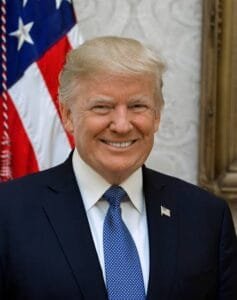THE DICTIONARY: AN INVISIBLE TEACHER

By Moshood Alabi
Permit me to begin this piece with a quote from a famous linguist, David Crystal: “From time to time, the idea of an English Academy continues to be voiced, but the response has never been enthusiastic.

By contrast, since the 18th century, there has been an increasing flow of individual grammars, dictionaries and manuals of styles in all parts of the English-speaking world.”
This quote posits that there can be some discrepancies in the information provided in different versions of the dictionary as a result of the absence of an English Language Academy. The issue of the academy is a topic for another day.
My scope of the word dictionary, as used here, is limited to the Desk Dictionary used in schools and offices to provide information on words. There are other types of dictionaries like the Thesaurus which provides information on synonyms and antonyms of words. Encyclopedia provides comprehensive pieces of information on a particular field or subject.
Special dictionaries provide information on the jargon of a particular field. You and I know that anytime the word DICTIONARY is mentioned, what comes to our mind is the desk dictionary used in schools and offices. Do you know that the dictionary can provide information beyond the meanings of words?
A dictionary is an invisible teacher. How? Let’s enjoy the usages or functions of a dictionary.
A dictionary provides the meaning of word. Always remember this term in semantics, polysemy. Do not look up just the meaning you are looking for; try to examine other meanings that a word can have so that you do not narrow your scope. It is possible for one word to have more than fifteen meanings. It is also possible for some meanings to be archaic. A dictionary will reveal that.
Also, a dictionary provides information on the origin of words, ETYMOLOGY. Why do we need to know the origin of words? It is necessary so as to know the environment of usages of some words.The popular among the varieties are American and British Englishes. It is not conventional in a text to combine both American and British usages.
A writer needs to be consistent with a particular variety at a time. For example,the word organisation has the American spelling as organization. In one piece,the same spelling cannot be used.
A writer is expected to adopt one.
More also,the dictionary provides information on the word class of a word as well as the usage of the word. Can you see how useful a dictionary is? It does not only provide the word class but indicates the limitations of the word through some classifications. A dictionary indicates,for example,whether a word is a countable or an uncountable noun. It also indicates the contextual application of the word.
Apart from that, the degree of formality of a word is not left out. A dictionary can provide the following facts about a word:
Formal (used mostly in an organised setting)
Informal (used in an unofficial setting)
Spoken (only used in conversations but can never be written)
Slang (used among selected people)
Technical (used like that in a particular field)
Furthermore, a dictionary is used to learn the pronunciation of words. It explains both the segmental and the suprasegmental phonology. It indicates the transcription of a word using the phonetic symbols as well as the indication of the stress pattern.
Do you also know that the original versions of idioms and proverbs as well as their meanings can be discovered in the dictionary? You can look up the meaning of idioms or proverbs by looking up the most important word in the idiom or proverb. The dictionary is indeed a great companion in learning the English Language.
Knowledge of grammar and punctuation marks can be derived through a dictionary. Some grammar rules are taught in a dictionary with comprehensive examples as well as some punctuation errors.
Overall, what is the essence of this piece? Many of the users of a dictionary are just interested in the meaning of a word. That still narrows the users exposure . A user needs to explore all the necessary information needed about a word in order to have a good mastery of the word. Broaden your knowledge by making the dictionary your best companion. It is, indeed, an INVISIBLE TEACHER.
References
Crystal David _Encyclopedia of Language._ London: Cambridge University Press. 2016
Leech Geoffrey. _Semantics_ .Great Britain: Penguin Books Limited. 1985
O’Dell Felicity and McCharty Michael. _English Idioms in Use._ United Kingdom: Cambridge University Press. 2017












